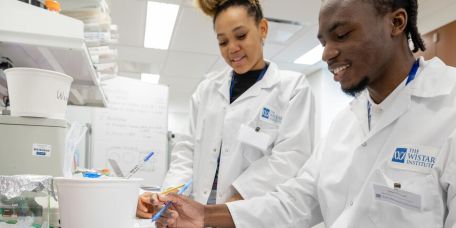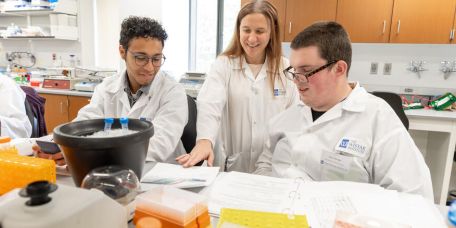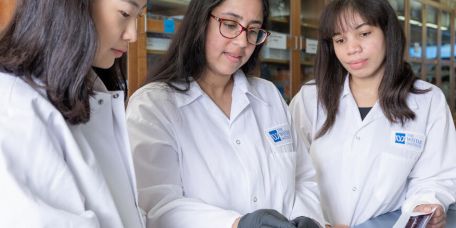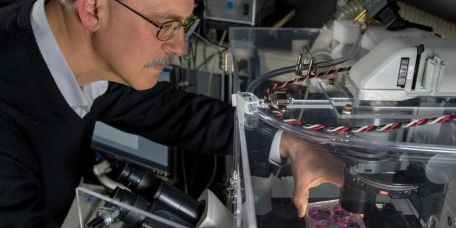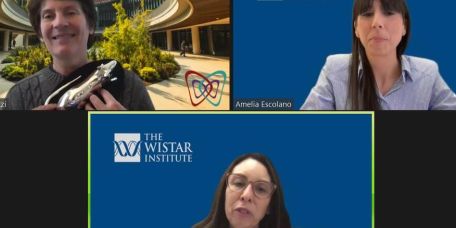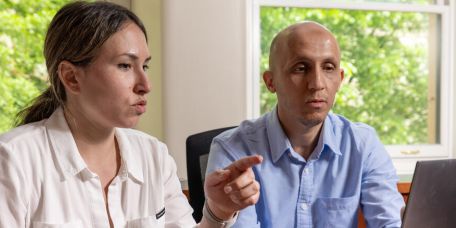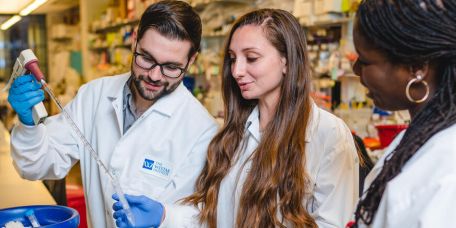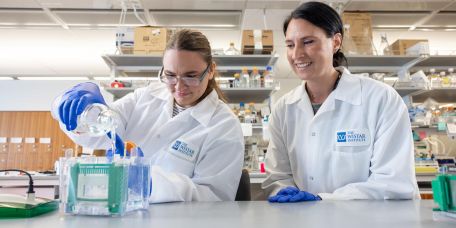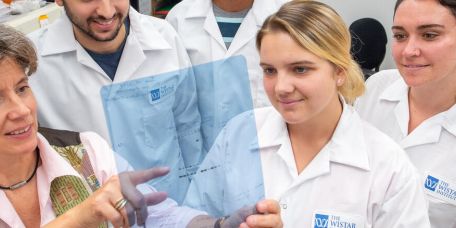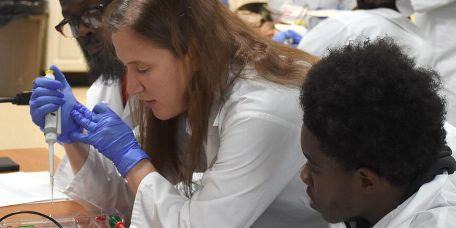The Wistar Institute
Wistar Trains the Next Generation of Research Technicians Thanks to The Fox Family’s Multigenerational Support
Since 2000, students at the Community College of Philadelphia have been participating in a summer program at The Wistar Institute to learn the ins and outs of being a research technician. Graduates of this program have the opportunity to apprentice…
How to Train an Entrepreneur? Wistar’s Newly Expanded Life Science Innovation Course is a Good Place to Start
For as far back as he can remember, Roger Malerba wanted to be a physician. He majored in biology at La Salle University and even shadowed doctors to learn more about orthopedic surgery, the specialty he planned to pursue. But Malerba’s career plan…
International Fellows Programs
Biomedical research knows no borders. Scientific exchanges across academic institutions around the world enrich knowledge, accelerate the pace of discovery, and facilitate the development of new cures. A cornerstone of scientific collaboration is th…
Unrestricted Planned Gift Supports Purchase of State-of-the-Science Instrumentation
Luis J. Montaner, D.V.M., D.Phil, and his team are making tremendous strides studying the ability of natural killer (NK) cells, a type of immune cell, to wipe out HIV-infected cells. Meanwhile, other groups within Wistar’s HIV Research Program, whic…
Nobel Prize Winner Dr. Carolyn Bertozzi Honored with Wistar’s 2022 Helen Dean King Award
Dr. Carolyn Bertozzi received the 2022 Helen Dean King Award from The Wistar Institute in recognition of her outstanding biomedical research on understanding how sugars that coat our cells impact diseases. “This award is an opportunity to celebrate…
The Lab of the Future: AI’s Impact on Biomedical Research
The evolution of machine learning and artificial intelligence is changing the way the contemporary lab looks and functions. Researchers today are discovering that breakthroughs can happen not only at the bench, but on the desktop. Noam Auslander, Ph…
The Wistar Institute Ranks 3rd in Innovation in New Heartland Forward Report
Think tank Heartland Forward released a new report tracking technology transfers from research institutions that lead to innovations that build stronger economies and The Wistar Institute ranked 3rd in Innovation. The report From Research to Renewal…
The Wistar Institute One of Nation’s Top 3 Research Institutions for Innovation
PHILADELPHIA — (OCTOBER 24, 2022) — The Wistar Institute, a leader in biomedical breakthroughs headquartered in Philadelphia, is one of the nation’s top drivers of innovation, research, and tech transfer toward a stronger economy, according to the r…
Dr. Maureen Murphy: Scientist and Teacher
Wistar offers the perfect blend of qualities for cancer researchers to thrive. Challenging science paired with a social cause is the winning formula that propels Dr. Maureen Murphy in her quest to cure cancer. A researcher for over 25 years, Murphy…
STEM Night at R.W. Brown Boys and Girls Club: Exploring Our Roots with DNA
Dr. Jason Diaz, The Wistar Institute education program director, moved around R.W. Brown Community Center classroom full of aquariums with turtles and fish, assorted plants, and books. Dr. Diaz’s excitement was obvious as he peppered the high school…
